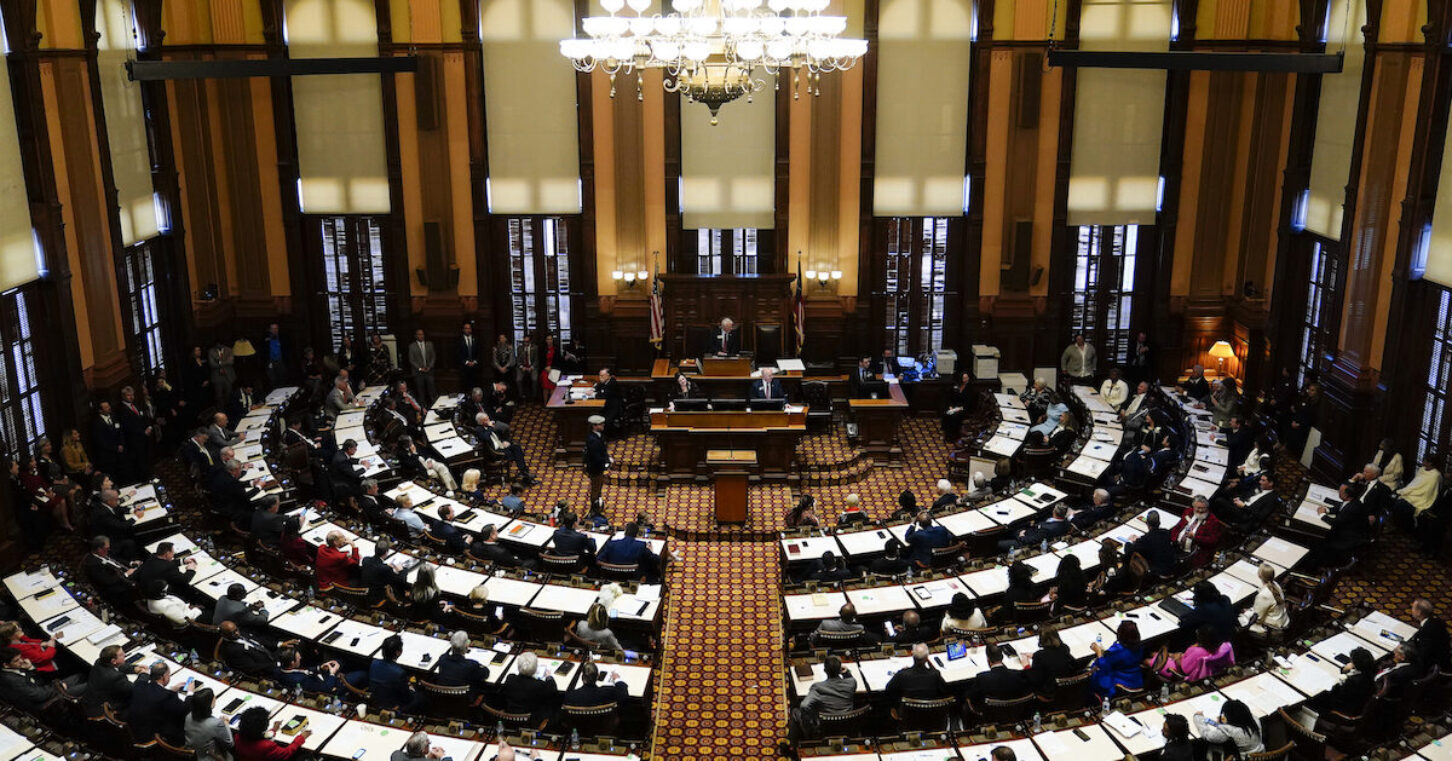
Georgia’s 2025 legislative session ended on Friday. While some of the big-ticket items, like tort reform, were settled relatively early, we saw some drama in the final days on issues like passing the $37 billion budget.
But on the last day of the session, lawmakers agreed to a budget, the only thing that the Georgia General Assembly is constitutionally required to do each year. Of note, the final budget includes Gov. Brian Kemp’s request to fully fund the Georgia Promise Scholarship program at $141 million, meaning some 22,000 students will be eligible.
Here is a recap of what else made it through the 40-day session, and what will be back for the 2026 session:
Lawmakers advanced Gov. Brian Kemp’s top priority, tort reform, in two separate bills.
- Senate Bill 68, sponsored by Sen. John F. Kennedy, R-Macon, addresses several aspects of tort reform, including but not limited to reevaluating premises liability, requiring a truthful calculation of damages in personal injury cases (thereby eliminating “phantom damages”) and allowing a jury to know whether a plaintiff was wearing his or her seatbelt in an auto accident. During the process, language was added to exempt premises liability cases involving sex crimes, while also giving judges discretion to reject splitting trials in cases with damages below $150,000 and those involving sex crime victims and to determine how seatbelt evidence can be used.
- SB 69, also sponsored by Sen. Kennedy, will regulate third-party litigation funding with the goal of limiting outside influence on trials, which includes that from foreign governments, institutional investors and predatory lending practices. The Foundation released a video on third-party litigation funding.
More tax relief is on its way for Georgia taxpayers:
- House Bill 111, sponsored by Rep. Soo Hong, R-Lawrenceville, will reduce the state’s flat income tax rate from 5.39% to 5.19% and adjust the rate to reach 4.99% by 2027.
- HB 112, sponsored by Rep. Lauren McDonald, R-Cumming, provides tax rebates of up to $500 to Georgia taxpayers.
- HB 266, sponsored by Rep. Steven Sainz, R-St. Mary’s, exempts all military retirement benefits from the state’s income tax.
- HB 92, sponsored by Rep. Shaw Blackmon, R-Bonaire, seeks to address concerns held by both taxpayers and local governments about the homestead exemption voters adopted last fall. The bill extended the date by which local governments could opt out of the exemption, but also provided a mechanism by which they could rescind their opt out. Governments can opt back into the exemption this year by April 30 of this year and by March 1 in future years.
- HB 880, also sponsored by Rep. Blackmon, will be considered next year. It would establish a Taxpayers Relief Fund, which is used to supplement revenue to gradually reduce income tax rates and other forms of tax relief. The bill would also decrease the lowest rate possible for individual and corporate income tax from 4.99% to 3.99%. The Taxpayers Relief Fund has been used in Iowa, which has gone from being ranked 44th for its tax climate to 20th.
Multiple regulatory reform measures made it out of the Senate and, while they didn’t clear the House, will be back for consideration next year.
- The Red Tape Roll Back Act of 2025. SB 28, sponsored by Sen. Greg Dolezal, R-Cumming, passed the Senate. It would require state agencies to perform top-to-bottom reviews of their rules and regulations every four years, direct state agencies to reduce compliance and paperwork burdens on small businesses and require agencies to provide an economic impact analysis to the General Assembly for proposed rules that are estimated to cost over $1 million over five years.
- SB 207, sponsored by Sen. Brian Strickland, R-McDonough, would allow individuals with criminal records to receive a predetermination from certain licensing boards prior to attempting to receive an occupational license. It also passed the Senate.
And in education, a number of measures made it through at least one chamber.
- Legislation that would require the State Board of Education to publish federal guidance and guidelines was approved by the Senate. SB 124 is sponsored by Sen. Shawn Still, R-John’s Creek. This language was originally in SB 22, sponsored by Sen. Blake Tillery, R-Vidalia.
- The House approved HB 328, sponsored by Rep. Kasey Carpenter, R-Dalton, which would increase the annual tax credits available for the state’s tax credit scholarship program from $120 million per year to $140 million. Carpenter noted the program is regularly oversubscribed on day one each year. This bill will begin in the Senate next year.
- The Senate advanced legislation that would allow foster families to qualify for the Georgia Promise Scholarship program. SB 152 is sponsored by Sen. Dolezal.
- Legislation that will allow military families to qualify for the Promise Scholarship program is included in SB 124. Both of these bills will start in the House next year.
- Legislation intended to encourage and provide incentives for local boards of education to approve new charter schools is one bill that passed both chambers. SB 82, known as the Local Charter School Authorization and Support Act of 2025, is sponsored by Sen. Clint Dixon, R-Buford. You can find more details in this video.
Thanks for reading At the Capitol this year!
